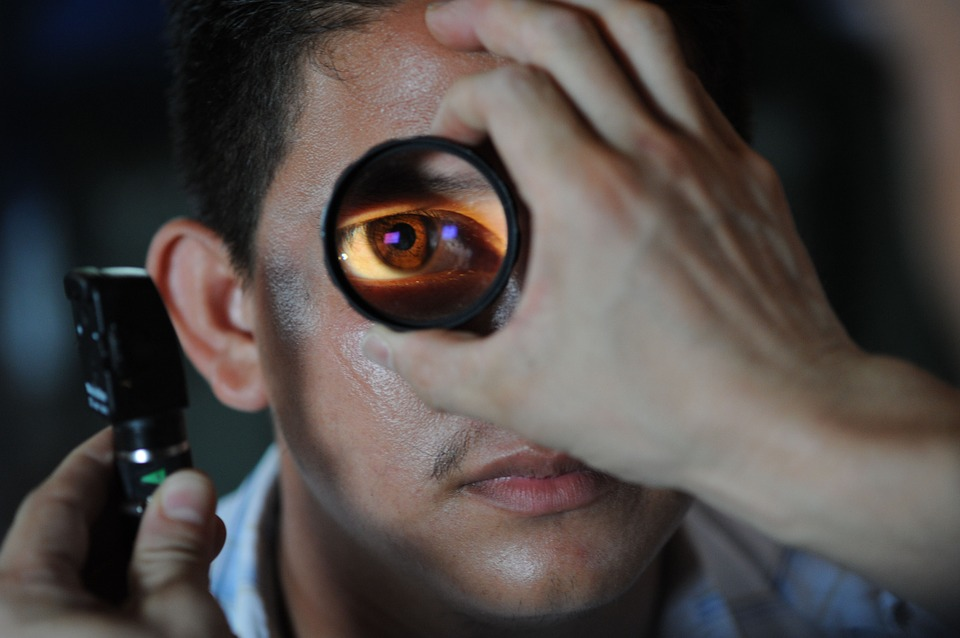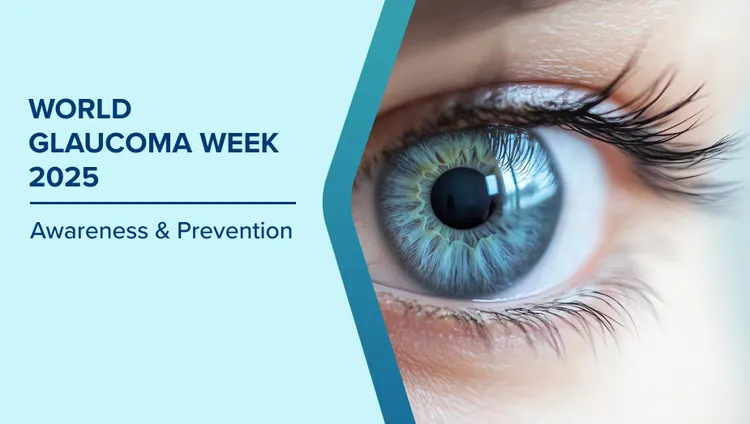Glaucoma Awareness in Qatar is now under serious discussion after a recent medical study highlighted a troubling lack of knowledge among citizens and residents. The research revealed that many people do not recognise the symptoms of glaucoma, often confusing them with general vision problems or aging.
The findings are a wake-up call for healthcare policymakers, eye specialists, and the general public. While Qatar boasts one of the best healthcare infrastructures in the Gulf region, the lack of glaucoma awareness remains a hidden challenge that needs urgent attention.
What the Study Found: Low Knowledge of Glaucoma Symptoms
The study was conducted by a leading medical institution in Doha with participation from over 1,200 residents of different age groups and nationalities. The results were shocking. Over 65% of respondents had never heard of glaucoma, and only 14% could correctly identify it as a disease that damages the optic nerve.
Furthermore, only 18% knew that glaucoma often has no early symptoms, making it even more dangerous. The study emphasised that many people wait until they experience vision loss before seeking medical help often when it’s too late to reverse the damage.

Who Is at Risk? Silent Vision Loss Among Middle-Aged Adults
Glaucoma Awareness in Qatar needs to increase especially among people aged 40 and above. This age group is at the highest risk of developing the disease, yet many are unaware of the danger.
One of the most alarming discoveries in the study was that nearly 30% of individuals aged 45 and older had never had an eye exam. Many believed that if they weren’t experiencing vision problems, there was no need to visit an eye doctor.
However, experts warn that glaucoma often progresses without symptoms, and by the time vision is affected, it’s usually irreversible. Silent vision loss is becoming a major public health issue in Qatar.
Cultural Misconceptions Worsen the Problem
Researchers also noted that cultural attitudes towards eye care may contribute to the lack of Glaucoma Awareness in Qatar. In some communities, visiting a doctor is reserved for serious illness, and preventive health checks are not a priority.
In interviews conducted as part of the study, some participants shared beliefs such as “eye problems come with age and can’t be stopped” or “wearing glasses too early weakens the eyes.” These misconceptions create resistance to early diagnosis and treatment.
Eye health professionals are now calling for culturally sensitive awareness campaigns that address these beliefs directly.
Why Regular Eye Checks Are Essential in Qatar
Glaucoma Awareness in Qatar must include education about regular eye exams. According to ophthalmologists, adults over the age of 40 should get a comprehensive eye exam every 1–2 years, especially if they have risk factors such as:
- Family history of glaucoma
- Diabetes or hypertension
- Long-term steroid use
- Eye trauma or injury
- High eye pressure (Intraocular Pressure – IOP)
Routine eye checks can detect signs of glaucoma before any vision loss occurs. Early treatment through eye drops, laser therapy, or surgery can preserve vision and reduce long-term risks.
Government Role and Public Health Campaigns
The study urges the Ministry of Public Health in Qatar to launch targeted campaigns to improve Glaucoma Awareness in Qatar. These campaigns should be multilingual to reach all demographics, including Qatari nationals and the large expat community.
Suggested public health actions include:
- TV and radio announcements about eye health
- Eye checkup camps in malls, mosques, and public areas
- Mandatory vision screening for residents over 40
- Collaboration with schools and workplaces for awareness programs
If implemented correctly, these steps can dramatically reduce preventable blindness in Qatar caused by untreated glaucoma.
Digital Tools Can Help Boost Awareness
With Qatar’s high internet penetration and smartphone use, digital tools can play a huge role in spreading glaucoma awareness.
Apps that track eye health, push reminders for checkups, and provide educational materials can be effective. Influences, local celebrities, and health experts can also help amplify the message through social media.
Glaucoma Awareness in Qatar can improve significantly if digital campaigns are designed to reach both the young and old population segments.
Real Stories: Residents Share Their Glaucoma Experienc
During the study, several residents shared personal stories that revealed how glaucoma has silently affected their lives. One 54-year-old engineer said he ignored blurry vision for over a year, assuming it was due to aging. By the time he sought help, his optic nerve had already suffered 70% damage.
Another resident, a 42-year-old housewife, was diagnosed during a free eye screening at a local mall. She had no symptoms but was immediately put on treatment that saved her vision.
These stories underline why proactive awareness and screenings can make the difference between sight and blindness.

Medical Experts Call for Early Detection
Medical professionals across Qatar agree that Glaucoma Awareness in Qatar is dangerously low and early detection must be a national health priority.
Dr. Lina Farouqi, an ophthalmologist at Hamad Medical Corporation, stated:
“Glaucoma is not just a disease of the elderly. We’re seeing cases even among people in their 30s. The key is early detection. The longer you wait, the more vision you lose.”
Eye care centers in Qatar are now being encouraged to offer discounted checkups during Glaucoma Awareness Week and World Sight Day to promote early screening.
Schools and Families Must Also Get Involved
Spreading Glaucoma Awareness in Qatar should not be limited to adults. Children and teenagers should be educated about the importance of eye health. Many schools already conduct basic vision screenings, but experts suggest that glaucoma education be added to health and science curriculums.
Parents play a vital role too. Teaching children not to ignore eye discomfort, vision changes, or frequent headaches can help prevent delayed diagnoses.
If young people grow up with a mindset that values preventive care, future generations in Qatar will be better equipped to handle diseases like glaucoma.
Conclusion: Glaucoma Awareness in Qatar Can Save Sight
The recent study sheds light on a growing concern low levels of Glaucoma Awareness in Qatar. While the country has world-class medical facilities, many residents remain unaware of this silent disease.
Glaucoma, if left untreated, can lead to permanent blindness. But with early detection and treatment, vision loss can be avoided. Public health initiatives, digital tools, cultural education, and proactive checkups are the key to protecting the nation’s vision.
Raising Glaucoma Awareness in Qatar is not just a medical responsibility it’s a community mission. With collective action, many people can be saved from losing their sight unnecessarily.
Do follow Gulf Magazine on Instagram
Also Read – QFFD Global Agreements: 16 Powerful Deals Worth QAR 1.92 Billion



